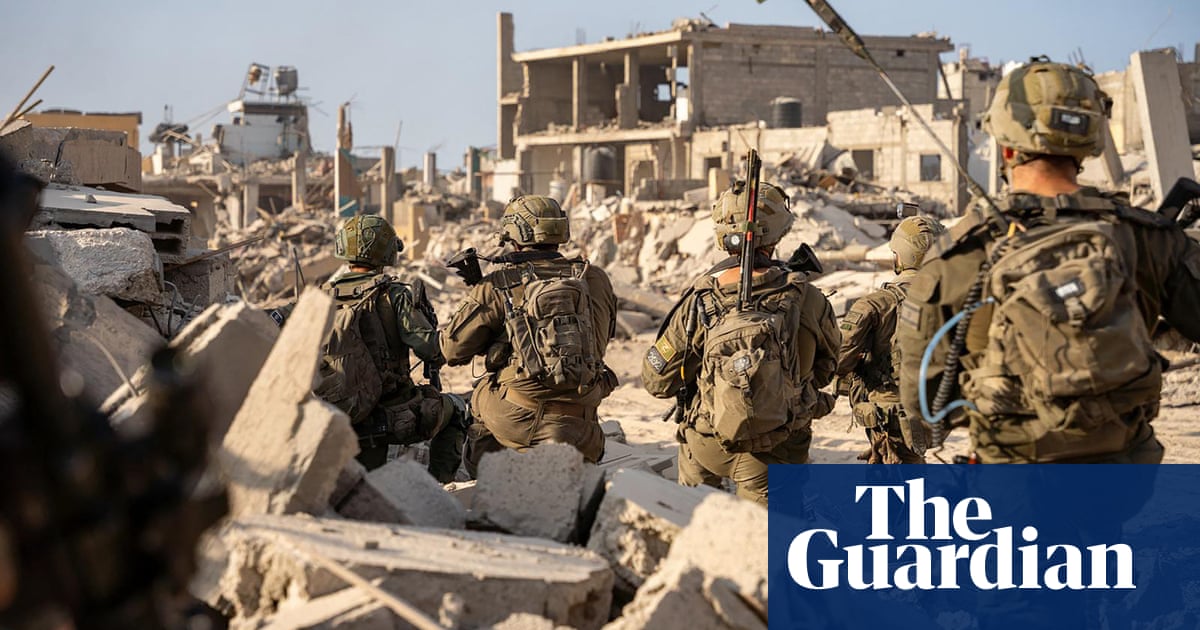Israeli negotiators head to Qatar as hopes rise for Gaza hostage deal

An Israeli negotiating team has arrived for talks in Qatar amid renewed optimism that a ceasefire-for-hostages deal with Hamas in Gaza can be achieved by the end of the year.
Both sides have expressed optimism in recent days that a deal may be close for a phased release of the surviving hostages in Gaza in exchange for a ceasefire and the release of Palestinian prisoners held in Israeli jails.
About 60 living hostages, mainly Israeli and and dual nationals, are believed to be still in captivity in Gaza as well as the bodies of 35 others, out of more than 240 who were abducted to Gaza during Hamas’s surprise attack on Israel on 7 October 2023.
The incoming US president, Donald Trump, has said he wants to see the hostages released or “all hell’s going to break out” and has sent a hostage envoy to Israel for meetings with senior politicians, including the Israeli prime minister, Benjamin Netanyahu, whom Trump spoke to over the weekend.
On Monday, the Israeli defence minister, Israel Katz, briefed lawmakers that Israel and Hamas were “the closest we’ve been to a hostage deal since the last deal”, which took place in November 2023 and resulted in the release of more than 100 hostages.
He added that he expected the deal to get widespread support. “There will be a sweeping majority in the security cabinet and the cabinet for the emerging hostage deal.”
Although details of an emerging deal are being negotiated under tight secrecy, it is understood that it would involve a phased ceasefire with an initial cessation of hostilities for 60 days in exchange for the release of surviving hostages, including women, the elderly and those suffering illness.
That was confirmed by comments on Army Radio by Israel’s diaspora affairs minister, Amichai Chikli, who said the potential deal “applies to all the hostages, but there’s a hierarchy, with the humanitarian cases in the first stage, and then the rest of the hostages”.
According to reports in Arab media, Hamas and other Palestinian militia appear to be more open and flexible over a slower, phased end to the fighting with talks focused on the number of hostages to be released in any first phase.
Sticking points that torpedoed previous rounds of talks, including the presence of Israel troops in the so-called Philadelphi and Netzarim corridors inside Gaza, appear to have been sidelined for now, although a continuing issue is understood to be the ability of Palestinians in Gaza to return to their homes in the strip’s north.
In the past week, Trump has ramped up his direct engagement on the issue, despite not being sworn in as president until 20 January, sending his incoming special envoy for hostage affairs, Adam Boehler, who met Netanyahu on Monday evening.
Commenting on his telephone conversation with Netanyahu on Saturday, Trump said: “We had a very good talk. I’ll be very available on January 20 and we’ll see. As you know, I gave warning that if these hostages aren’t back home by that date, all hell’s going to break out.”
Katzy, the Israeli defence minister, however, insisted Israel would maintain security control over Gaza even after a ceasefire.
“In response to various reports – my position regarding Gaza is clear. After we defeat Hamas’s military and governing power in Gaza, Israel will maintain security control over Gaza with full freedom of action.” He added: “We will not allow a return to the reality before October 7.”
Israel’s consul in New York, former minister Ofir Akunis, has also commented positively on the ongoing talks.
“At this point in time, we can say that we are closer than ever to a new deal to free the hostages held by Hamas in Gaza,” he said. “We are expecting good news. This a very difficult, complex negotiation, but all of us want to see everyone come home soon.”
Despite the encouraging noises coming from both sides, negotiations have repeatedly reached an impasse before amid accusations of bad faith.
However, the ceasefire with Hezbollah in Lebanon and the collapse of the Assad regime in Syria have created a new dynamic with a decimated Hamas isolated from any meaningful support in the rest of the region.
Hamas has also suffered major blows, such as the death in October of its leader, Yahya Sinwar, and the earlier killing of the leader of its armed wing, Mohammed Deif.
Israeli military strikes across the Gaza Strip killed at least 14 Palestinians on Tuesday, at least 10 of them in one house in Gaza City, medics said, as tanks pushed deeper towards the western area of Rafah in the south.
Related
Qatar emphasizes importance of reaching agreement between US, Iran
CAIROQatar's Prime Minister Sheikh Mohammed bin Abdulrahman Al-Thani stressed the critical need for an agreement between the US and
International Women’s Day: Seeking a Balance with Ghada Al Subaey
1309’s Ghada Al Subaey of Qatar celebrates the many layers of femininity in her recent drop, called Labyrinth of Light. This International Women’s Day, the
Discover Ooredoo Plans and Services in Qatar
Ooredoo is the household name in the field of telecommunications and provides a full portfolio of telecom services: mobile plans for everyone, home
What Will The Imminent Qatar Airways Widebody Order Include?
Which Airline Alliance Do You Prefer To Fly With?












